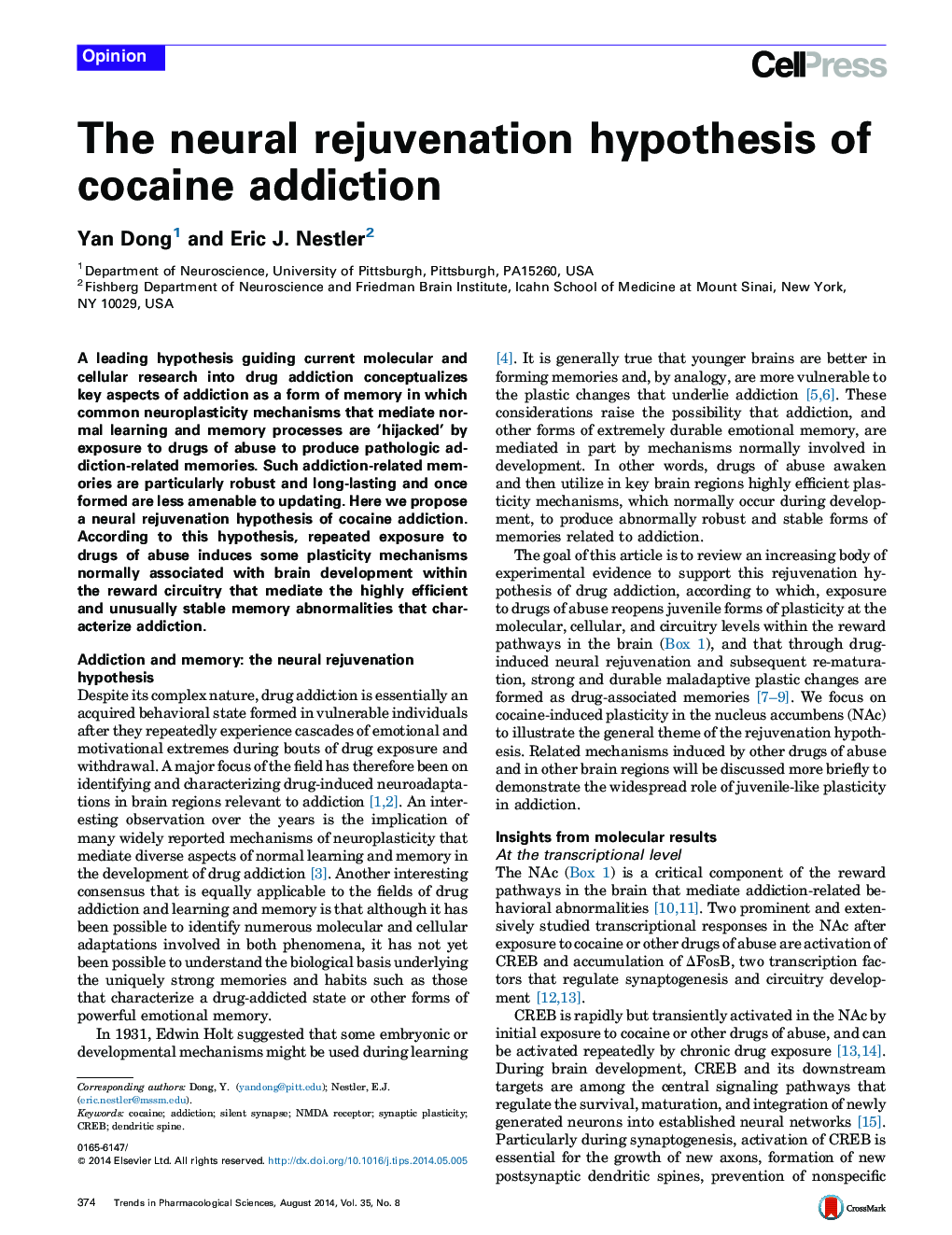| کد مقاله | کد نشریه | سال انتشار | مقاله انگلیسی | نسخه تمام متن |
|---|---|---|---|---|
| 2572786 | 1129328 | 2014 | 10 صفحه PDF | دانلود رایگان |
• Addiction may be partly mediated by mechanisms normally involved in development.
• Juvenile substrates of molecular or neural plasticity reemerge after cocaine exposure.
• Rejuvenated neural circuits are highly plastic and mature during cocaine withdrawal.
• This creates strong and durable maladaptive changes underlying addiction.
A leading hypothesis guiding current molecular and cellular research into drug addiction conceptualizes key aspects of addiction as a form of memory in which common neuroplasticity mechanisms that mediate normal learning and memory processes are ‘hijacked’ by exposure to drugs of abuse to produce pathologic addiction-related memories. Such addiction-related memories are particularly robust and long-lasting and once formed are less amenable to updating. Here we propose a neural rejuvenation hypothesis of cocaine addiction. According to this hypothesis, repeated exposure to drugs of abuse induces some plasticity mechanisms normally associated with brain development within the reward circuitry that mediate the highly efficient and unusually stable memory abnormalities that characterize addiction.
Journal: - Volume 35, Issue 8, August 2014, Pages 374–383
